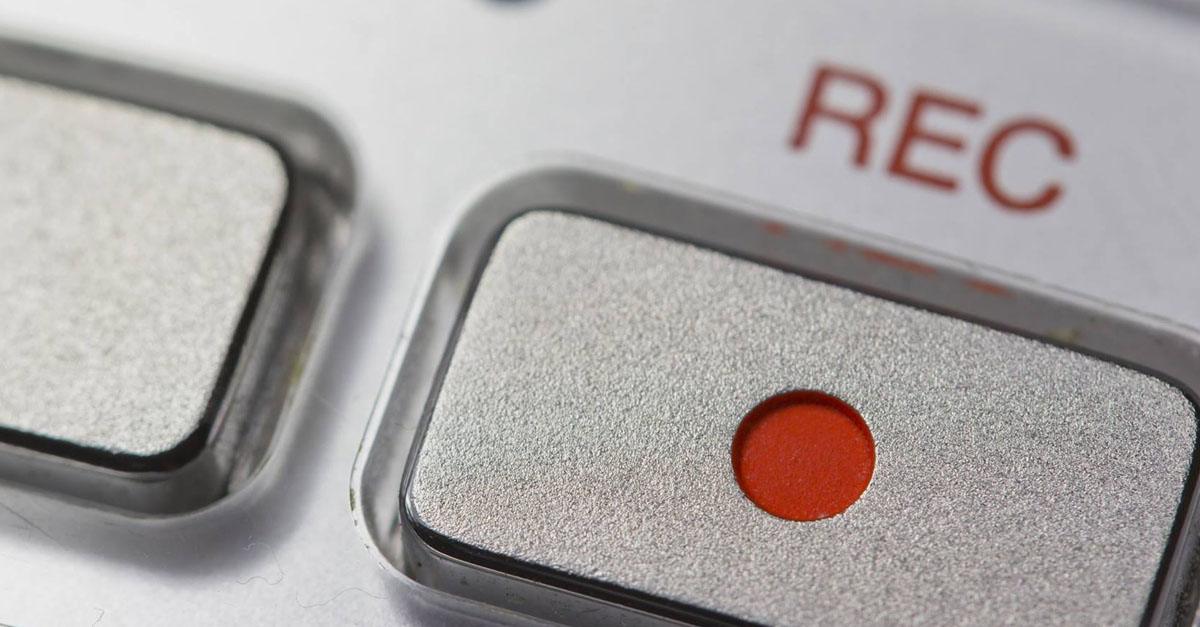Legality of recorded conversations in the labor process

Currently, technological progress and the massive use of new technologies have raised doubts when it comes to using these new technological means as evidence in a judicial process.
The topic at hand deals with the legality and validity of using a recorded conversation as evidence in a labor process.
Today, there are even applications (apps) for mobile phones smartphones that allow us to record any conversation we make, even by telephone, but to what extent is it legal to record a person having a conversation without violating a fundamental constitutional right?
Evidence in the labor process is regulated in Title I, in Chapter II, in Section III of the Regulating Law of the Social Jurisdiction , which in its art. 90.1 states:
The parties, after justifying the usefulness and relevance of the proposed procedures, may use all the means of proof that are regulated by Law to prove the controversial facts or required proof, including the procedures for reproduction of words, images and sound or archiving and reproduction of data, which must be provided by means of adequate support and by making available to the court the means necessary for their reproduction and subsequent evidence in the case file.
Therefore, we can include recorded conversations within the group of “word and sound reproduction procedures”. However, art. 90.2 of said Law establishes the following:
Evidence originating from or obtained, directly or indirectly, through procedures that involve violation of fundamental rights or public liberties will not be accepted.
Now it is worth considering whether this type of evidence really supposes a violation of a fundamental right such as the right to the secrecy of communications, the right to privacy, or the right to one’s own image regulated in article 18 of the Spanish Constitution.
One of the first to pronounce was the Constitutional Court in a ruling from 1984 (STC 114/1984 of November 29). Said judgment analyzes the fundamental rights to which we have previously referred.
Right to personal or family privacy
The first of these, “right to personal or family privacy” (art. 18.1 CE).
It is established that this right would only be violated in the event that the conversation deals with a personal or family matter of the interlocutors.
Thus, the statement asserts the following:
«In the telephone conversation recorded by the complainant interlocutor… there was no, due to its content, nothing that could be understood as concerning his “intimate life” or his “personal privacy”.
Therefore, it does not constitute a violation of this fundamental right. That is, for example, if a worker records a conversation with his superior in which only the causes of his dismissal are discussed, this conversation would be valid as evidence ; However, if in said conversation, one of the interlocutors reveals personal or family information of theirs or of third parties, it would no longer have any type of validity because it would be violating a fundamental right.
Right to confidentiality of communications
Regarding the second, “right to secrecy of communications” (art. 18.3 CE), what this sentence establishes is that if the person who recorded the conversation is part of it, that is, the interlocutor, there is no “secret”.
However, if a person records a conversation between other people and is not part of it, that is, they are not the interlocutor, here there is a “secret” and therefore < strong>the right to secrecy of communications would be violated.
The Constitutional Court affirms the following:
“There is no «secret» for the one to whom the communication is addressed…. such an absolute and undifferentiated imposition of the «secret» cannot be valid, always and in any case, for the communicators… Whoever records a conversation of others pays attention, regardless of any other consideration, to the right recognized in art. 18.3 of the Constitution; on the contrary, whoever records a conversation with another does not incur, by this fact alone, in conduct contrary to the cited constitutional precept.”
Right to own image
This ruling adds another precept to take into account about this type of evidence and that is dissemination.
Well, broadcasting a recorded conversation does impair a fundamental right, and it is the “right to one’s own image” regulated in art. 18.1 of the Spanish Constitution.
Thus, the statement states:
«constitutional contravention could only be understood materialized by the very fact of dissemination».
Conclusion
Therefore, we can conclude that a recorded conversation can serve as evidence in a labor process, but meeting the following requirements:
- The plaintiff or respondent should be part of the conversation.
- It is illegal to record a conversation between third parties.
- The conversation that deals with some aspect of the intimate life of the people who participate in it or of third parties is not valid as evidence.
- It is illegal to broadcast a recorded conversation, even if it deals with labor issues and even if it is the interlocutor who records said conversation.
If these requirements are not met, the following fundamental rights regulated in art. 18 of the Spanish Constitution:
- Right to privacy.
- Right to secrecy of communications.
- Right to own image.
27/09/2017



















